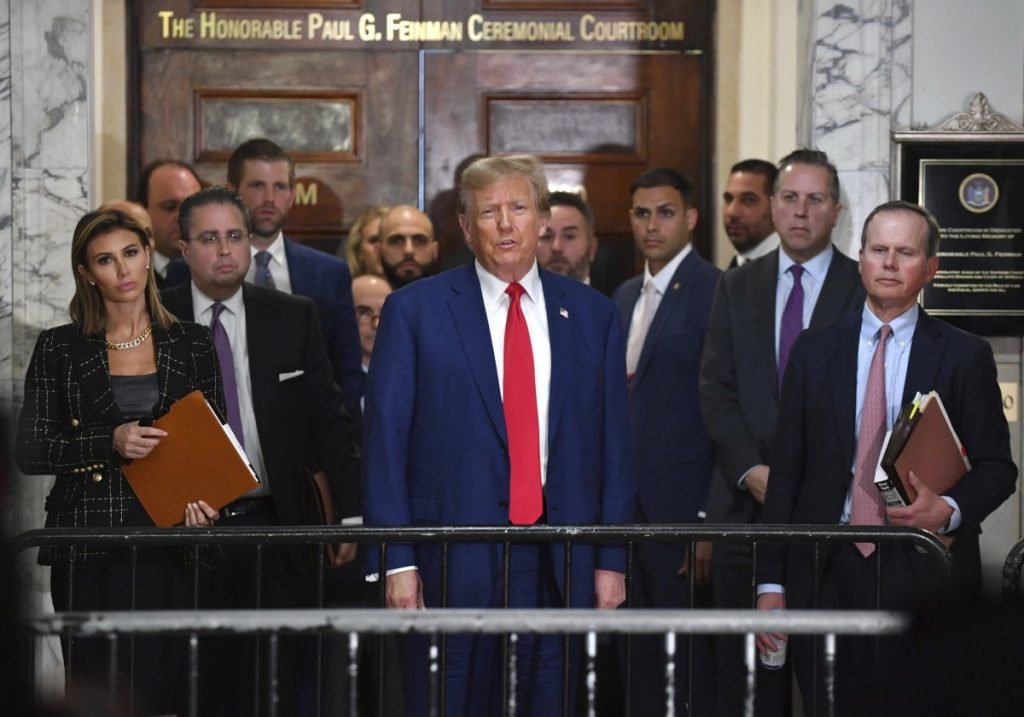Appeals Court Overturns Massive Civil Fraud Penalty Against Trump

A New York appeals court has struck down the substantial financial penalty in the civil fraud case against U.S. President Donald Trump, part of a lawsuit accusing him of inflating his net worth. The decision comes seven months after Trump returned to the White House.
The panel of five judges from the state’s mid-level Appellate Division ruled that the $355-million penalty imposed by Judge Arthur Engoron—now exceeding $515 million with interest—was excessive. Including additional fines for Trump Organisation executives like Eric and Donald Trump Jr., the total had risen to over $527 million.
“While the injunctive relief ordered by the court is well crafted to curb defendants’ business culture, the court’s disgorgement order, which directs that defendants pay nearly half a billion dollars to the State of New York, is an excessive fine that violates the Eighth Amendment of the United States Constitution,” wrote Judges Dianne T. Renwick and Peter H. Moulton in one of several opinions forming the court’s decision.
Judge Engoron had also imposed non-monetary sanctions, including temporarily barring Trump and his sons from holding corporate leadership roles. Those measures were paused during the appeal, and Trump avoided immediate payment by securing a $175-million bond.
Though the court was divided on the underlying claims and fraud findings, it threw out the financial penalty entirely while leaving the door open for further appeals to the state’s highest court.
This ruling followed an unusually long review process, with the court deliberating for nearly 11 months after hearing arguments—a much longer timeline than typical appeals, which are usually resolved within weeks or a few months.
The lawsuit was brought by New York Attorney General Letitia James, who previously stated Trump engaged in “lying, cheating, and staggering fraud.” Her office had no immediate response to the appeals court’s decision.
Trump and his co-defendants have maintained their innocence. During a January 2024 court appearance, Trump said, “I’m an innocent man” and described the case as a “fraud on me.” He has also consistently alleged that the case and judgment were politically motivated by James and Engoron, both Democrats.
The Justice Department under Trump has issued a subpoena to James for documents related to the lawsuit, investigating whether the case violated the president’s civil rights. James’ personal attorney, Abbe D. Lowell, responded by calling the investigation “the most blatant and desperate example of this administration carrying out the president’s political retribution campaign.”
Trump’s legal team argued that his financial statements, which included disclaimers stating they were unaudited, weren’t misleading. They also emphasised that lenders and insurers conducted their own assessments and that all loans were repaid. Trump claimed that even figures like the tripled size of his Trump Tower penthouse didn’t inflate his wealth, stating the documents underestimated his fortune.
At a September appellate hearing, Trump’s lawyers contended that many of the allegations were outdated and that the attorney general misused a consumer protection law to pursue a case involving private business dealings that satisfied all parties involved.
The state, however, argued the law covers fraudulent practices regardless of whether consumers or large institutions are involved. Officials said that while Trump insists no harm was done, his inflated numbers may have led lenders to issue riskier loans than intended—ultimately disadvantaging honest borrowers.
According to the state, the penalty was justified based on the financial advantages Trump allegedly gained, including property profits and favourable interest rates available to borrowers with inflated net worths.
This civil case is one of multiple legal matters Trump is managing during his presidency.
In January, he received an “unconditional discharge” in a criminal case involving hush money, which left his conviction intact but imposed no additional punishment. That ruling is being appealed.
In a separate civil case, a federal appeals court upheld a jury’s conclusion that Trump sexually abused writer E. Jean Carroll in the mid-1990s and later defamed her, affirming a $5-million judgment. A request to reconsider that decision was rejected in June, though Trump can still petition the Supreme Court. He is also appealing a second judgment requiring him to pay Carroll $83.3 million for further defamation.
